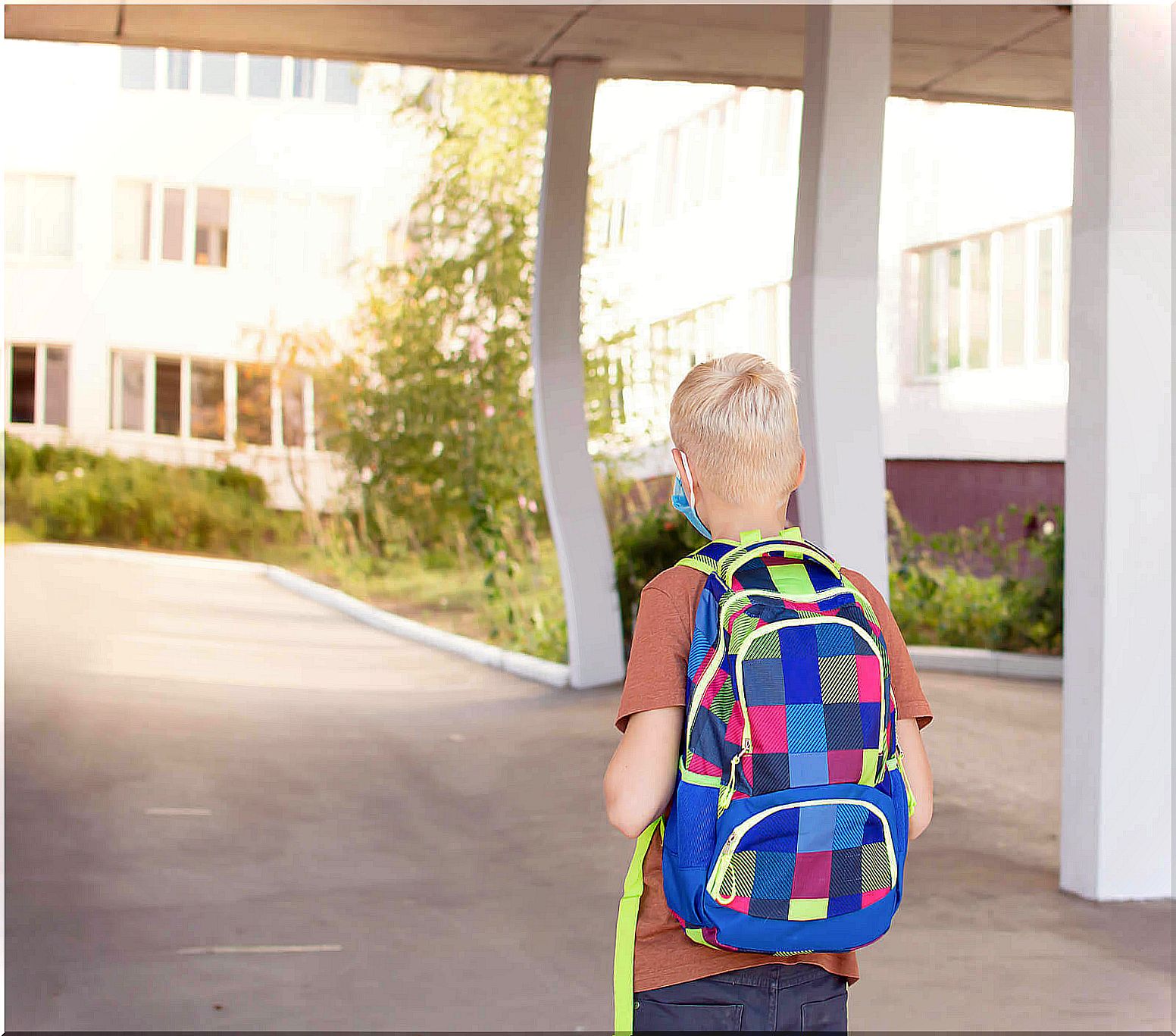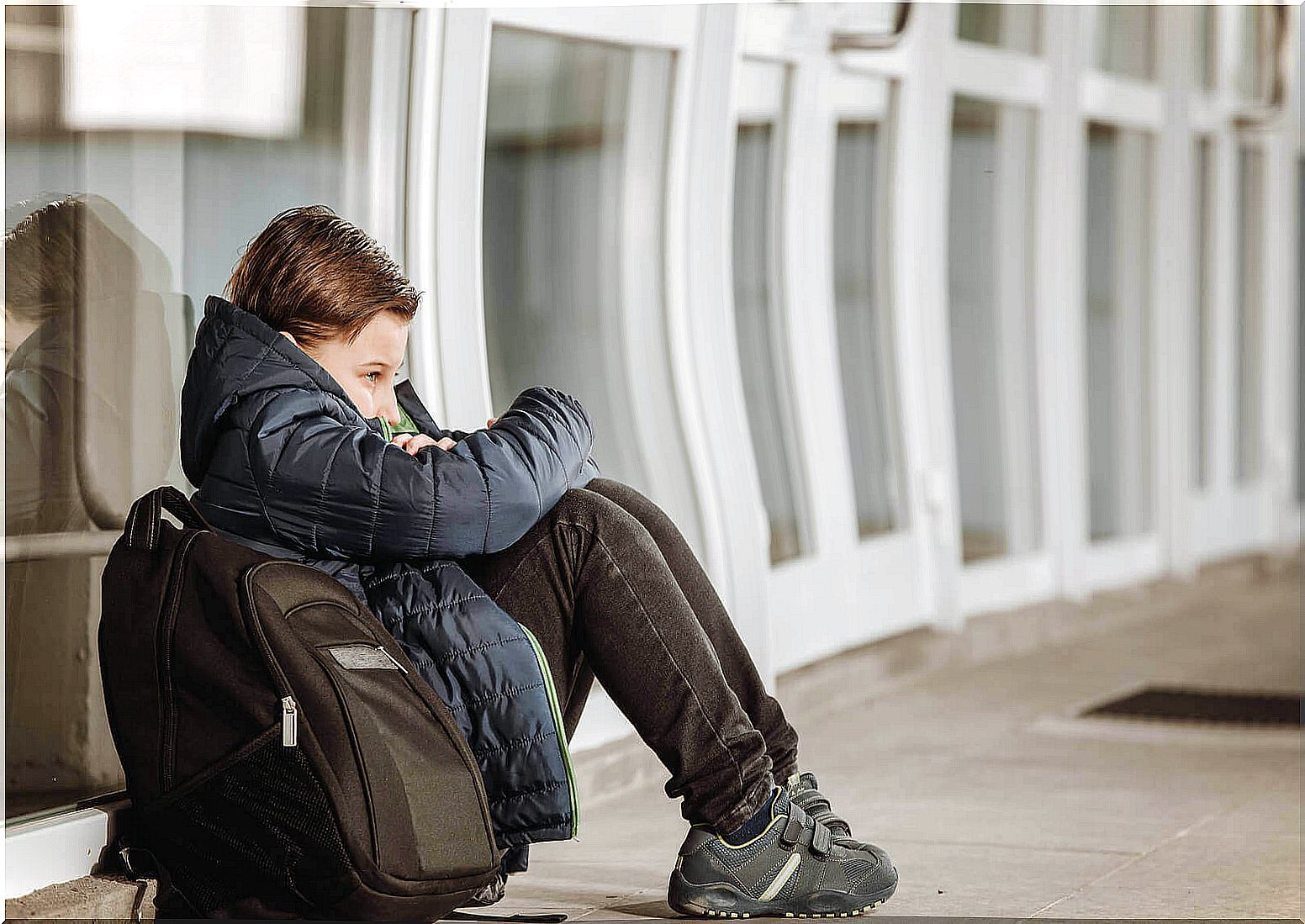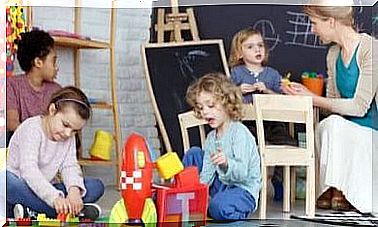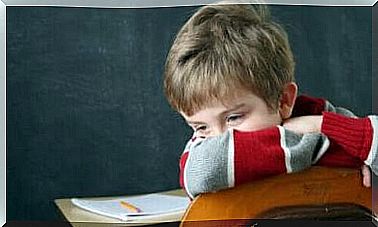Penalism And Peer Oppression In The Initiation Of New Students

Penalism and peer oppression, especially during initiation rituals for new students, have gone from being a rite of passage to a real nightmare for many children. For many young people, the problem is really serious, especially when the initiation becomes excessive, lasts a long time or gives rise to mental disorders.
Let us imagine the thoughts of a young person going to primary school, high school or university for the first time. Logically, this student will be nervous. To this we can add the fact that older students take every opportunity they have to throw them in the mud, write nasty messages on their faces or put them in embarrassing situations.
What feelings do you think the new student will experience during these months of penalism and peer oppression?
Is there really anything positive about these situations, as some claim? Let’s look at what the experts say. How can we act – both as parents and students – in initiating new students?

Penalism and peer oppression in the initiation of new students and its consequences
Experts, such as psychologist Loreto Gonzalez-Dopeso, argue that initiating new students has negative consequences for children. In fact, this specialist is the chairman of the association “No More Hazing” in Spain. He has become an active advocate of this behavior.
According to Gonzalez-Dopeso, the initiation could be a doorway that allows aggressors to abuse other children. At present, however, there are not many studies on the subject.
According to him, there is only one serious study, called ” Novatadas, comprender para actuar “, (Initiation in school, understanding to be able to act). It was performed by the University of Comillas and concludes that following this type of ritual can have unreasonable consequences. In addition, it can lead to extremely serious situations, such as abuse of power and bullying.
Today, the association, led by Gonzalez-Dopeso, works to reduce the number of initiation rituals, and their manifesto is accompanied by several universities. Together, they have also succeeded in getting many institutions to sign and follow the manifesto of the University Council of Spain to reduce this type of behavior, which humiliates and makes fun of new students with penalism and peer repression.
How to prevent the initiation of new students
According to new studies and knowledge from professionals such as Gonzalez-Dopeso , initiating new students involves penalism and peer repression in the form of humiliation, insults and abuse.
In fact, they go a step further by claiming that initiation infringes on the integrity and dignity of the most vulnerable. Therefore, we can not tolerate it, especially not in institutions that must stand up for integrity, altruism, hard work, solidarity and cultural values.
Among the solutions that experts offer to put an end to this undesirable situation, we would like to highlight the following:
Consider the initiation of new students as a form of abuse
Children should never be forced to undergo this type of treatment. Instead, we must make it clear to them that penalism and peer oppression are a form of abuse. We need to encourage them to report it. It’s not fun, nor is it transient.
Encourage students to form groups to counter penalism and peer repression
It is more difficult for these situations to arise if the new students stick together as a group and support each other. In addition, it can be helpful to have teachers or other people that the rest of the students respect in these groups.
Close contact between home and school
It is important to maintain frequent and direct contact with the family and with the students who suffer or are affected as a result of this initiation. Knowing exactly what is happening makes it easier to intervene appropriately.
Only inform if it is safe
It is important to avoid retaliation due to accusations of “gossip”. Therefore, it is important to provide students with secure channels through which they can report abuse and bullying.

Stay close to friends to avoid penalism and peer oppression
New students are safer and more relaxed when they are accompanied by older students. If they have acquaintances or family members at school, it is good if they stick together.
Communicate appropriate contacts
For example, when a new student comes to a school, he or she should have the opportunity to contact certain people of interest, such as the university’s lawyer. This person can be very helpful in preventing this problem.
Be aware of dangerous substances
Finally, it can be dangerous for new students to accept initiations that require them to drink alcohol, smoke tobacco and, in rare cases, even take illegal drugs. Therefore, it is important not to accept this practice. In severe cases, do not hesitate to contact the police.
In any case, it is important that we all work together to put an end to these dangerous behaviors. We can no longer let it affect our young people.








